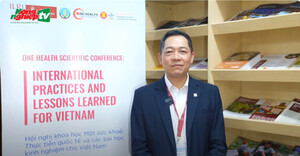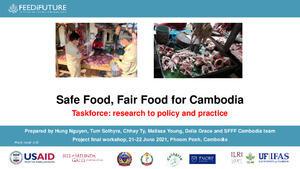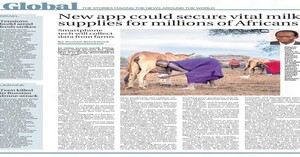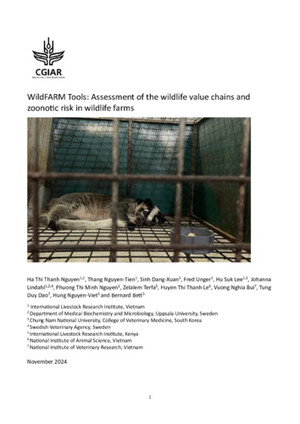
Connect. Convene. Facilitate. Scale: Locating the role of the CGIAR Research Initiative on Diversification in East and Southern Africa (Ukama Ustawi) Scaling Hub within the East and Southern Africa Agribusiness Support Landscape
Abstract
Agriculture is the largest sector in East and Southern Africa, employing 65% of the population and contributing over 30% of the region’s GDP . Despite its vital role in the region’s economy and global food production, the sector faces many challenges, including climate change, poor infrastructure, and global supply chain disruptions, leading to high levels of food insecurity and poverty in the region. Introducing climate-resilient solutions to enable climate adaptation, strengthen value chains, and empower smallholder farmers with a focus on youth and women are key to strengthening the sector and driving its growth.
However, building and scaling these innovations remains a challenge. As of December 2022, only 4% of investment in technology companies in Africa has gone to agriculture-related products. Within this, only 3% went to the growth or late stage, typically associated with scaling innovations. Many challenges exist. Key among them is the fragmented nature of the ecosystem. Support for early-stage innovations is largely delivered through the network of agribusiness entrepreneur support organisations (AESOs) on the continent including hubs, accelerators, incubators, hackathons, donor programmes and projects on the continent. AESOs, in this context, refer to organisations providing support to smallholder farmers, agtechs, and agribusinesses in a variety of formats. Powerful scaling partners needed to reach agribusinesses and smallholder farmers, like agriculture corporations, government or even mobile network operators (MNOs), operate outside of this ecosystem.
In 2022, CGIAR launched the Research Initiative on Diversification in East and Southern Africa (Ukama Ustawi) to bring together the agribusiness ecosystem in East and Southern Africa to co-design and implement solutions to accelerate the scaling of agricultural innovations for the transformation of food, land, and water systems. The three-year initiative aims to change the behaviour of 50,000 farmers, value chain actors and consumers towards more climate-smart and diverse practices, reach 1 million farmers with new digital agro-advisory and risk management products, scale up to thirty agribusinesses through new financing and mobilise USD 100 million of investment into the agribusiness ecosystem.
This report focuses on work package 6 of the Initiative – Scaling and Coordinating, and its work to scope out what the upcoming CGIAR Research Initiative on Diversification in East and Southern Africa Scaling Hub should focus on. Specifically, it identifies barriers and opportunities for scaling agriculture innovations in the region that the Hub can focus on to contribute to the milestones of the Research Initiative on Diversification in East and Southern Africa (Ukama Ustawi).
Citation
Inoubli, A., Adebola, M., Saunders, D. and With, L. 2022. Connect. Convene. Facilitate. Scale: Locating the role of the CGIAR Research Initiative on Diversification in East and Southern Africa (Ukama Ustawi) Scaling Hub within the East and Southern Africa Agribusiness Support Landscape. Nairobi, Kenya: ILRI.










